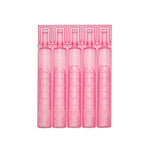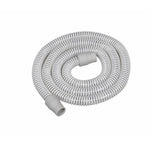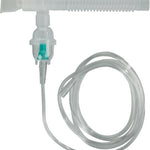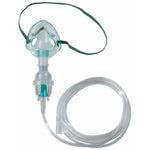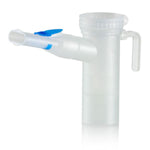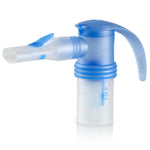You have no items in your shopping cart.
Nebulizer users suffering from respiratory ailments such as asthma and COPD can be especially sensitive to pollutants such as dust, mold, pollen, and airborne chemicals. Because of this, it is important to take control over the quality of air in your home. There are a number of steps you can take to reduce the irritants in the air you and your family are breathing, ranging from home improvements to small everyday practices.
The EPA has a number of recommendations for homeowners. First, reducing sources of pollutants such as asbestos and natural gas. Asbestos can be sealed and treated by a professional trained in handling hazardous materials. Gas stoves can be tested for leaks by your gas company fixed by a qualified plumber. Changes to your home's ventilation system such an installing exhaust fans in areas such as kitchens and bathrooms.
If you will be performing home remodeling, painting or other short-term activities that might increase the levels of pollutants in your home, you can greatly improve the quality of the air you are breathing by simply opening windows and doors. The fresh air will dilute the pollutants and give them a chance to escape indoor areas.
Regular cleaning can tremendously reduce the amount of pollutants in your home. Carpet fibers attract dust, mold, pet hair, and a variety of other pollutants that can get into the air. Thorough vacuuming and occasional shampooing can make a big difference, as can wiping down floors, walls, and other surfaces. Household cleaners can contain harsh chemicals which some with respiratory diseases may find irritating. Whenever possible, look for products with natural ingredients, which will be safer for you and the environment.
Devices such as HEPA filters and humidifiers can also help improve air quality in your home. A HEPA filter cleans the air by using fans to force it through a fine mesh, which traps pollutants. A humidifier will release a fine mist of water vapor, which any pollutants will stick to, removing them from the air.
We hope these tips will help you and your family breathe a little easier. If you are in the market for a home humidifier, see the collection of Pediatric Humidifiers on our site.
For more information on indoor air quality, see:
https://www.epa.gov/indoor-air-quality-iaq/improving-indoor-air-quality
http://www.webmd.com/lung/features/12-ways-to-improve-indoor-air-quality?page=3
Nebulizer users suffering from respiratory ailments such as asthma and COPD can be especially sensitive to pollutants such as dust, mold, pollen, and airborne chemicals. Because of this, it is important to take control over the quality of air in your home. There are a number of steps you can take to reduce the irritants in the air you and your family are breathing, ranging from home improvements to small everyday practices.
The EPA has a number of recommendations for homeowners. First, reducing sources of pollutants such as asbestos and natural gas. Asbestos can be sealed and treated by a professional trained in handling hazardous materials. Gas stoves can be tested for leaks by your gas company fixed by a qualified plumber. Changes to your home's ventilation system such an installing exhaust fans in areas such as kitchens and bathrooms.
If you will be performing home remodeling, painting or other short-term activities that might increase the levels of pollutants in your home, you can greatly improve the quality of the air you are breathing by simply opening windows and doors. The fresh air will dilute the pollutants and give them a chance to escape indoor areas.
Regular cleaning can tremendously reduce the amount of pollutants in your home. Carpet fibers attract dust, mold, pet hair, and a variety of other pollutants that can get into the air. Thorough vacuuming and occasional shampooing can make a big difference, as can wiping down floors, walls, and other surfaces. Household cleaners can contain harsh chemicals which some with respiratory diseases may find irritating. Whenever possible, look for products with natural ingredients, which will be safer for you and the environment.
Devices such as HEPA filters and humidifiers can also help improve air quality in your home. A HEPA filter cleans the air by using fans to force it through a fine mesh, which traps pollutants. A humidifier will release a fine mist of water vapor, which any pollutants will stick to, removing them from the air.
We hope these tips will help you and your family breathe a little easier. If you are in the market for a home humidifier, see the collection of Pediatric Humidifiers on our site.
For more information on indoor air quality, see:
https://www.epa.gov/indoor-air-quality-iaq/improving-indoor-air-quality
http://www.webmd.com/lung/features/12-ways-to-improve-indoor-air-quality?page=3


